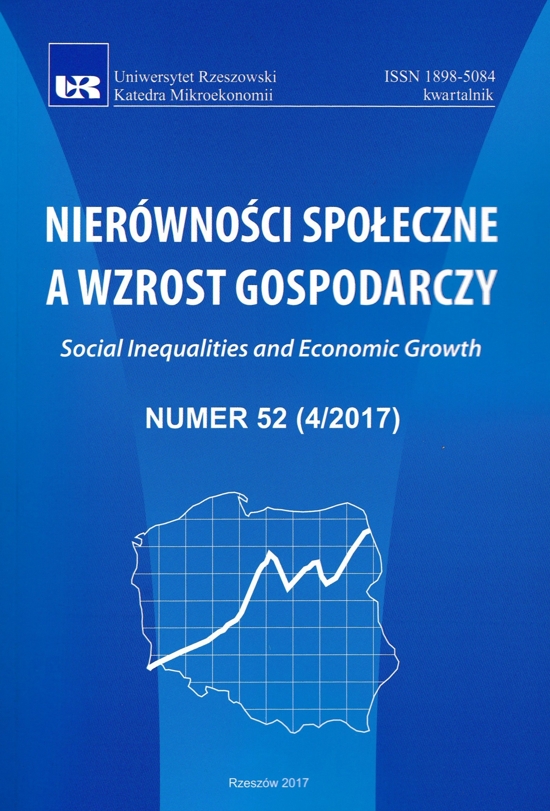Bezpieczeństwo jako globalne dobro publiczne
w kontekście problemu państw upadłych
Security as a global public good in the context of the problem of failed states
Author(s): Marek LeszczyńskiSubject(s): Socio-Economic Research
Published by: Wydawnictwo Uniwersytetu Rzeszowskiego
Keywords: security; public goods; failed states
Summary/Abstract: Security as the subject of studies has gained popularity among the representatives of socialscience disciplines in recent years. Within the framework of economic studies, the studies oversecurity are conducted within one of the specific economy – security economy. Security guaranteeis one of the basic functions of the state and the conditions of its accomplishment lie in the area ofinterest of the discipline mentioned. Recently, because of the growing number of so called failedstates, researchers such as J. Kleer [2015] point out that the security has become the global publicgood. Each human has a right to feel secure, although such security is not always provided by theparticular inhabited territory. Development of failed states is the effect of strong competition for theresources (such as raw materials, water resources, technology) by the weaknesses of institutionalstate systems. As a result, the fundamental question arises of how and who is going to provide securityin the conditions of erosion of national states. In this context, the transnational institutions suchas United Nations, European Union or NATO have a significant role. The aim of the article is toshow the meaning of security as a public good (a global public good) in the conditions of instabilityof international systems and considerable developmental differences which result in arising of failedstates. These states do not perform their basic functions in any way, they do not have control overtheir own territory and are the subject to attacks of international criminal groups, corruption and thelike. Failed countries constitute a significant economic problem and a potential threat for the moredeveloped part of the world. In this context, it is crucial to seek for alternative methods of improvingthe situation and fairer formation of developmental processes.
Journal: Nierówności Społeczne a Wzrost Gospodarczy
- Issue Year: 2017
- Issue No: 52
- Page Range: 70-79
- Page Count: 10
- Language: Polish

